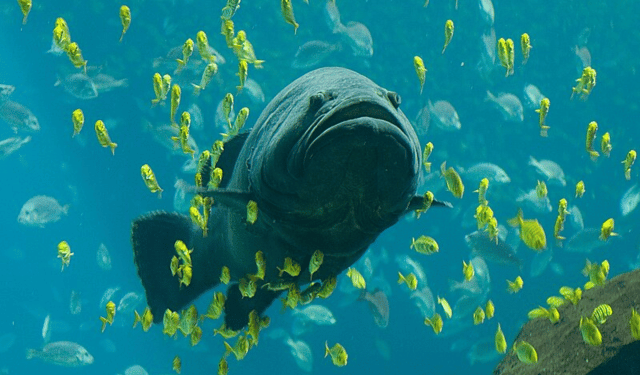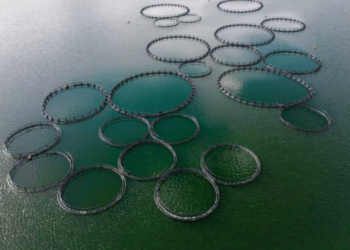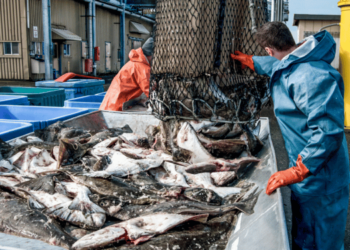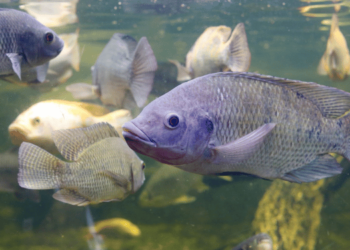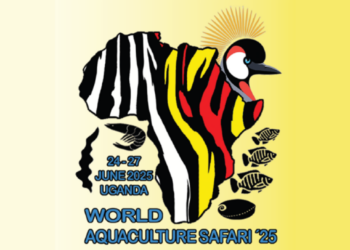In the future of RAS aquaculture in Europe is the giant grouper – In the future of RAS aquaculture in Europe is the giant grouper – Aquaculture in recirculating systems (RAS) is experiencing a revolution with the OPTI-RAS project, a pioneering initiative led by the Alfred Wegener Institute and the Helmholtz Centre for Polar and Marine Research (AWI), in collaboration with Oceanloop, Sander and Ecomarine. The goal is ambitious: to make the Queensland giant grouper a species perfectly adapted to intensive farming in Europe, combining profitability and sustainability.
With support from the German Federal Ministry of Research and Education, the project is part of the Innovation Space Bioeconomy on Marine Sites programme, aiming to develop innovative breeding protocols for efficient and environmentally friendly production. The first concrete steps have already brought encouraging results: grouper fry, shipped from the Australian hatchery The Company One, have been successfully acclimatised at the AWI Centre for Aquaculture Research. Experiments focused on growth, stress response and optimisation of rearing density.
One of the most promising findings concerns the ability of the grouper to reach 3 kg in weight in just one year, demonstrating superior growth potential compared to other fish species reared in RAS. In addition, research has explored different stocking densities, varying from 60 to 200 kg per cubic metre. The results suggest that grouper can be farmed at higher densities than current standards, significantly increasing productivity.
The economic aspect is equally relevant: the project tested the reaction of the European market to giant grouper by including it on the menus of top restaurants. Red Bull’s Ikarus restaurant, awarded two Michelin stars in Salzburg, has already introduced this species into its gourmet offerings, arousing great interest. In November 2024, an experimental sale to private customers also started, confirming a growing demand for this new fish reference.
According to Dr Bert Wecker, CTO of Oceanloop, the Queensland giant grouper represents a breakthrough for sustainable marine aquaculture. Its rapid growth, excellent feed conversion and resistance to high stocking densities make it a key species for the future of the industry. With the continued development of optimised feeding and management protocols, this species could soon become a benchmark for the European fish market.
The OPTI-RAS project thus marks a decisive step forward in the innovation of RAS aquaculture, paving the way for an efficient and sustainable production model. If the results continue to confirm its potential, the Queensland giant grouper could establish itself as one of the most promising species for breeding in Europe, providing a balance between profit and respect for the marine environment.
The future of RAS aquaculture in Europe includes giant grouper

